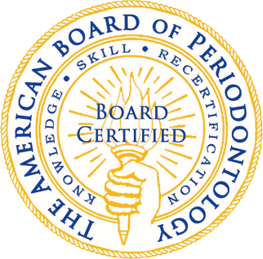 Here at BAK Implant Studio, we are proud to offer wisdom teeth extraction for our patients.
Here at BAK Implant Studio, we are proud to offer wisdom teeth extraction for our patients.Wisdom teeth are the last set of molars. Most people start getting their wisdom teeth when they are teenagers, though some experience that in their early twenties.
Wisdom teeth have a purpose. They are another set of molars, but more often than not they cause more problems than they are worth. Wisdom teeth can come in misaligned, facing any direction. They can even try to come in horizontally, growing into your other teeth. This can damage your teeth and even your jawbone.
There are also times when your wisdom teeth can become impacted and are not able to come through the gums. They can also come in partially, allowing food to catch in the area and cause plaque to build up. This can lead to bacteria and infection, which will only get worse.
In case your wisdom teeth are not erupted in the right place, we recommend them. The surgery goes much better if you get the teeth removed before any signs of problem. Though surgery can be scary, Dr. Bak and our entire staff will be glad to help you throughout the process. We will explain the whole procedure step by step until you are comfortable. We also offer sedation services if you prefer to be out under during the surgery.
Since many people worry about having surgery, we have compiled some of the most frequently asked questions (FAQs).
What are the common symptoms of an impacted wisdom tooth?
Most people complain of pain and swelling of the gums right above the impaction. This can be due to infection or just tension from the teeth hitting each other. Another less obvious symptom of an impacted wisdom tooth is bad breath or a bad taste in your mouth from infection and debris buildup. Some people don’t realize that they have a problem until they have pus coming out of their gums. You may also have some soreness, tenderness, or pain when eating and talking. Some people even complain of an earache.
What should I expect after surgery?
Recovery is quick following wisdom teeth extraction. After a few days, you should be feeling much better. We will also prescribe pain medication and antibiotics (if necessary) to help you through the first week after the surgery.
You may also experience some bleeding, so it is important to change your gauze pads as needed. This bleeding should subside within twenty-four hours. Avoiding bending down and using extra pillows to keep your head elevated helps reduce the bleeding. Any negative pressure can cause bleeding by dislodging the blood clot form the extraction socket. Therefore, we recommend not using a straw, spitting, or blowing hour nose for the first couple of days.
We also recommend the use ice pack against your cheek during the first day to prevent swelling. After the firs day, you can use a warm washcloth for a few more days if you want.
Resting is also very helpful to recover faster. Maintaining a soft diet is recommended for the first week to prevent possible entrapment of food if the extraction area.
What are the risks of surgery?
Though there are always risks to every surgery, it is important to realize that the risks of leaving impacted wisdom teeth in is worse than removing them.
Some risks of surgery include pain and swelling. Bleeding that won’t stop after about a day. Dry socket is a painful condition that occurs when the blood clot is lost too soon.
Rarer side effects include numbness that does not go away and a fractured jaw. There are also times when the sinus cavity is opened during surgery, which can be treated at the time of surgery. We use advanced technology to evaluate your teeth before surgery and minimize the risks associated with the extraction.
For additional information about wisdom teeth removal or to schedule an appointment please contact us today at (818) 705-3232.











